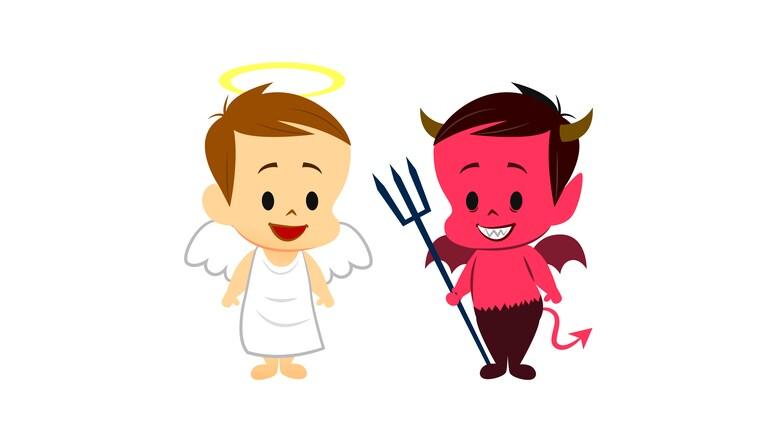Navigating the Complex Emotions of Love and Healing
Written on
Chapter 1: The Paradox of Healing and Love
Why do we often feel worse when we strive for improvement? Why does embracing love seem to entail accepting pain? And why is it that we feel the most fear when we are on the verge of obtaining what we truly desire?
Societal beliefs often mislead us into thinking that making the right choices should yield positive feelings. Plato was among the first to link truth, beauty, love, virtue, and happiness in a linear relationship. This notion seeps into therapy when clients express sentiments like, “I’ve done everything I can, yet I’m still angry at my narcissistic ex.” In contrast, a mechanic wouldn’t say, “I’ve repaired your car, but it still won’t start.”
Clients frequently reduce their healing journeys to a simplistic formula:
Follow Steps = Feel Good
I can’t help but ponder what kind of deity they must believe in—not a religious figure, but one that dictates their mental state. This 'god' appears to promise them happiness if they comply with its unwritten rules. Nietzsche aptly termed this phenomenon their ‘unconscious autobiographies.’

For instance, a patient who believes she has moved past her father’s infidelity finds herself repeatedly drawn to partners who betray her. Her past continues to influence her present. She imagines a cosmic Cupid who metaphorically strikes her with arrows aimed at those who repeat her father’s sins. ‘Cupid’ represents her unresolved father issues, compelling her to seek out men who will replicate the pain she experienced as a child.
I explain that her dating patterns mirror a ritualistic reenactment of her childhood trauma: seeking out men who will replicate her father's betrayal. She protests, “But my dad cheated on my mom, not me.”
“Your father betrayed you!” I respond emphatically. She gazes at me, realizing one of us has misunderstood the situation. “When you discovered your father’s infidelity, how did that make you feel?”
“Betrayed!”
“And when you check your boyfriend’s phone and discover he’s seeing someone else, how does that feel?”
“Betrayed.” Tears begin to flow.
Her father’s actions taught her two crucial lessons: First, men are unfaithful. Second, infidelity equates to love. “But he never directly told me that!” she insists.
“He didn’t need to. In your eyes, he embodied love. His actions defined what love meant to you as a child. The men who hurt you, despite their lack of integrity?—?they love in the same way your father did; they feel familiar.”
The expressions on my patients’ faces in these moments blend gratitude with frustration.
Months later, she finds herself in a relationship with a trustworthy man. I can see it in her demeanor, her eyes, and the light she exudes. For her, a good partner only needs to meet a minimal standard: honesty and fidelity. This man surpasses her expectations without even realizing it.
For the first time, she feels secure. Yet this newfound safety feels profoundly unsettling.
“Why do I feel scared?” she inquires.
“Because this is genuine.”
“Wasn’t it real before?”
“That was the past. You mistook your previous relationships as present experiences; in reality, you were merely replaying old narratives with different actors. You were cast as the betrayed woman, and your partners were merely filling the roles of your father.”
“Then why do I feel frightened if I’ve finally changed?”
“In the past, you feared betrayal. Now, you fear that he won’t betray you. This time, you are genuinely evolving. This man is wonderful—he listens to you, he’s faithful. He’s not hiding anything from you, and he has no desire to do so. He cares about your feelings and supports you. That reality terrifies your inner demons.”
“Why?”
“Because, for the first time, you’re starting to believe in love.” Her eyes widen in realization. “Your fears are afraid because you are beginning to embrace love.”
“Why would I feel fear when my demons are afraid?”
“Because they are part of you.”
To integrate with your shadow self, you must acknowledge it as a vital aspect of who you are. This is why the Joker’s insight, “You complete me,” holds more wisdom than Batman realizes.
The shadow knows truths about the light that the light often denies during moments of darkness. This concept, rooted in Jungian psychology, refers to the aspects of ourselves that remain unintegrated. These elements may include negative traits like fear and anger, but they can also encompass positive attributes like love and connection, especially when these attributes are linked to vulnerability we associate with pain.
We do not inherently fear what harms us, nor do we automatically embrace what benefits us. We welcome pleasure just as we recoil from pain. The patient feared vulnerability and connection because she had come to associate them with loss. Love became synonymous with loss after her father’s betrayal.
Her suffering had been profound, and her father’s instability led her to conflate love with loss, convincing her that one inevitably leads to the other. As a result, she felt apprehensive about a healthy relationship, as she was still learning to recognize it as something positive.
When those who are unhappy encounter happiness, they often feel like frauds. When individuals who have been betrayed find themselves in a loyal partnership, they experience the vulnerability that their previous toxic relationships had denied them.
Coping skills are essential even in the face of joy. The most effective way to manage happiness that feels intimidating is to acknowledge both the fear and the joy as parts of your experience, both valid and present for a reason. I do not suggest this lightly: allow your shadow and your light to coexist.

Chapter 2: Understanding the Fear of Love
In this insightful video, "The Fear of Love," we explore the reasons behind the anxiety that often accompanies love. This discussion sheds light on how past experiences shape our present perceptions and relationships.
Chapter 3: Overcoming Love's Challenges
In the TEDx talk "Overcoming the Fear of Love," Trillion Small discusses strategies to confront and conquer the fears that hinder our ability to love fully. This talk offers valuable insights on breaking free from the patterns that hold us back.